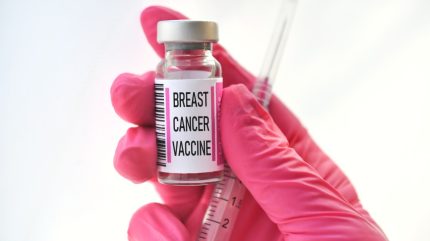
Anixa Biosciences has announced plans to launch a Phase II clinical trial of its breast cancer vaccine administered in the neoadjuvant setting (prior to surgery).
The prospective trial will be designed to assess the vaccine’s efficacy, along with chemotherapy and Keytruda (pembrolizumab).

Discover B2B Marketing That Performs
Combine business intelligence and editorial excellence to reach engaged professionals across 36 leading media platforms.
It aims to reduce the tumour burden and avert recurrence, potentially enhancing patient survival rates.
This approach enables the inclusion of a diverse patient demographic, covering various breast cancer types.
Assessing the immunological response elicited by the vaccine and comparing the clinical efficacy of standard care alone versus the combination of the vaccine and standard care will be the trial’s primary goals.
In addition, the study will examine the breast cancer tissue to confirm the vaccine’s immunological mode of action.

US Tariffs are shifting - will you react or anticipate?
Don’t let policy changes catch you off guard. Stay proactive with real-time data and expert analysis.
By GlobalDataScheduled to begin in 2025, the trial is expected to last two to three years.
The announcement of the upcoming Phase II trial follows the initiation of a Phase I trial at Cleveland Clinic, supported by a grant from the US Department of Defense.
Preliminary Phase I results indicated no safety concerns, with a majority of subjects exhibiting immune responses as defined by the protocol.
Anixa Biosciences chairman and CEO Dr Amit Kumar said: “We are excited to unveil our Phase II study plan, bringing us one step closer to a potentially transformative therapy for breast cancer patients.
“While our Phase II trial focuses on the therapeutic market, with the data obtained in this trial, we expect to conduct additional, more informed studies for both recurrence prevention and primary prevention with partners in the future.”



